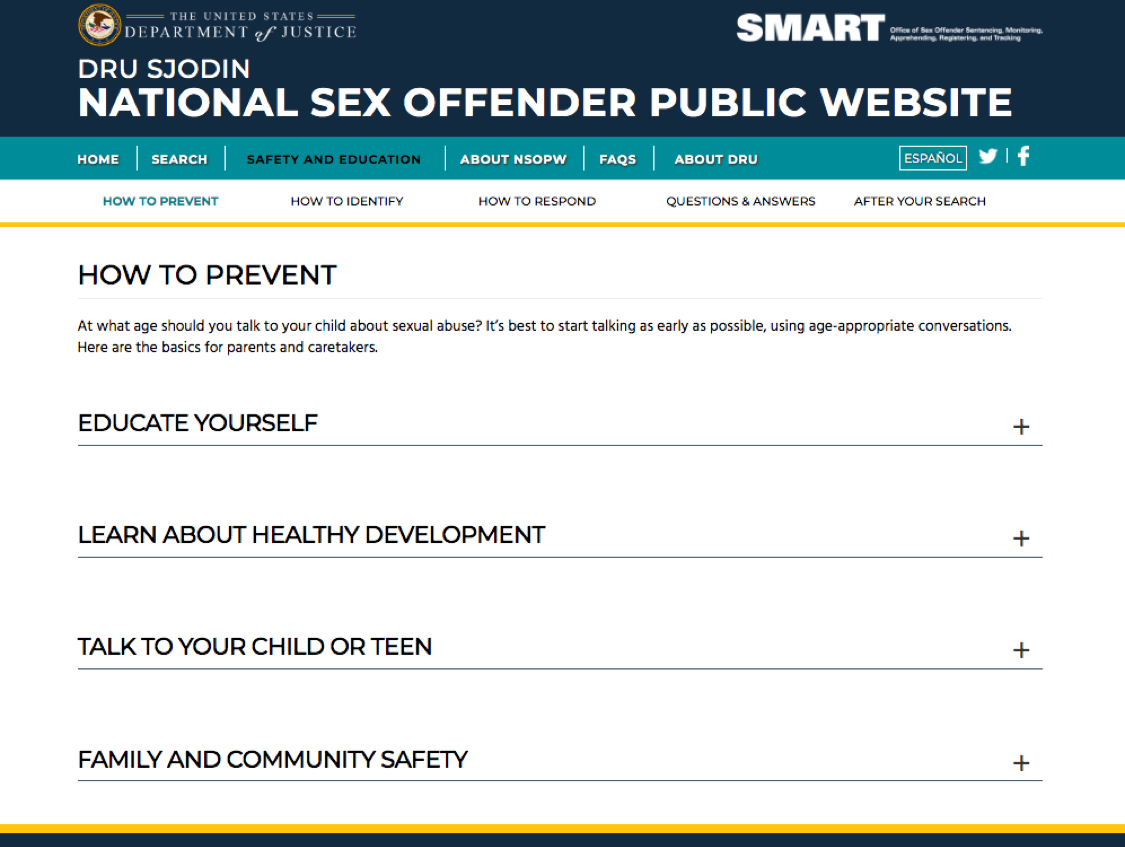Empower your children to resist and rebuff sexual predators

The U. S. Department of Justice National Sex Offender Public Website (NSOPW) advises parents to talk with their children about sexual abuse:
HOW TO TALK TO YOUR CHILD
Discussions about sexuality and sexual abuse can start long before a child reaches puberty. The sooner a parent initiates conversations about healthy sexual development, how the body changes and sexual abuse, the better. Here some tips on starting the conversation.
- Names for body parts: Properly naming and talking openly about body parts helps children gain respect for their bodies and the bodies of others. These conversations help children to not be ashamed or embarrassed by their bodies and prevent secrecy and silence. Teaching children names of body parts also gives them language to ask questions or talk to you about any worries and concerns.
- Model healthy boundaries: Teaching your child that it’s OK to say “no” to being touched and to respect when someone tells them “no” lets them set and respect healthy boundaries. If it’s helpful, talk with other adults about boundaries and ask them to respect if a child says “no” to a hug or other physical affection. This sends a consistent message about respecting each other’s boundaries. And be sure to respect a child’s boundaries in play and in affection.
- Be sure talks are ongoing: There’s no need to put everything into one big “talk” about sex. Talking openly about developing bodies, boundaries and sexuality can be part of ongoing everyday conversations.
- Be involved in your child’s life: Being engaged in your child’s activities, asking about what she or he is doing, getting to know parents of your child’s friends and knowing the other adults your child might talk to helps you stay connected and involved.
- Talk about media and technology: As technology use increases, it’s an ever-growing part of children and teens’ lives. Asking questions about technology you don’t understand, talking about what your child is doing and supervising access — especially during the younger years — will help you monitor what your child sees and hears. Like teaching children to cross the street, it takes time to teach them how to be online safely.
HOW TO TALK TO YOUR TEEN
As a child becomes a teenager, conversations about preventing sexual abuse can become more complicated. Teenagers will begin to look for relationships outside the family for friends, security and advice. They also may be confused or embarrassed about their own developing sexuality, which makes talking to parents or guardians more difficult. As teens go through these stages of exploration, they are also more at risk, so answering questions and being approachable is one way to help keep teens safe.
- Be realistic and educate yourself: When teens seek information about sex, their “friend” sources may not be reliable. Parents can try talking with their teens, and letting them know they are available. If a teen is resistant to talking, parents can ask if there is someone else they would feel comfortable with and/or find books or videos with age-appropriate information.
- Don’t put off conversations: Parents can find small ways to let their teens know they’re available to talk. Even if the teen does not want to talk, you are letting them know you are approachable.
- Explain consent: It’s important for teens to know they have the right to give or refuse consent, regardless of their relationship status. They can say “no” at any time. And it’s just as important that they respect the rights of others to say “yes,” or “no.” Get to know the laws on consent in your state, tribe or territory.